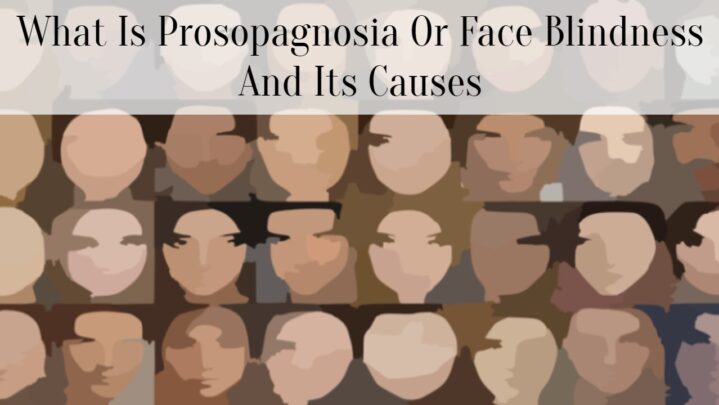Despite having an adequate vision, Prosopagnosia (pro-so-pag-no-zee-ah) is a disorder where your brain is unable to distinguish faces or facial expressions.
The purpose of treatment is to address the root problems or assist you in adapting so you can recognize people in new ways.
A category of illnesses known as agnosias, which affects how the brain receives information from the senses, includes prosopagnosia. The majority of these disorders develop as a result of brain injury from a variety of causes. But even without that harm, prosopagnosia can occur.
Who is affected by it?
Prosopagnosia, often known as face blindness, can occur either congenitally or as an acquired condition, meaning that it results from injury to a specific area of the brain (this means a person is born with it). The congenital form of this ailment may be genetic, according to the data that is currently available, as it appears to run in some families.
How prevalent is this illness?
The prevalence of either version of this illness is unclear to experts. There is very little or no information on acquired prosopagnosia. Congenital prosopagnosia, also known as developing prosopagnosia, is a condition that affects up to 2.5% of the population, according to some estimates.
Although there’s debate regarding how accurate that proportion is. The fact that this illness is so challenging to diagnose contributes to the debate. There is also some dispute about whether or not this issue and having a poor memory for faces are related.
Why does prosopagnosia occur?
Depending on how they occur, the condition’s causes can vary. The majority of agnosias are acquired, meaning you get them eventually in life. Brain traumas are the most frequent cause of agnosias in humans, including prosopagnosia. These wounds, also known as lesions, can develop for a variety of causes.
Congenital prosopagnosia is a condition that does not result from a brain injury. There are only a handful of confirmed and speculative causes for congenital prosopagnosia.
Is there a treatment for prosopagnosia, and if so, what is it?
Prosopagnosia cannot be directly treated. Some of the causes of acquired prosopagnosia, though, can be treated. Solving those issues could aid in treating this illness. These recoveries are uncommon, and prosopagnosia is typically a permanent condition.
There are still ways to compensate and adapt if you have congenital prosopagnosia or persistent acquired prosopagnosia. In the end, medical professionals will teach you how to manage your disease so that it has less of an influence on your life.





